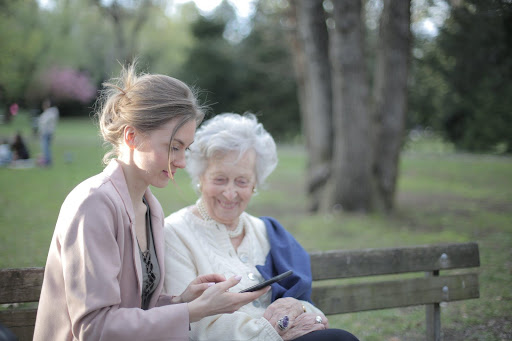Adjusting to retirement can be tricky. While retirement does ease pressure and stress, it still comes with a few challenges, especially regarding your health. Most people in the US retire above the age of sixty. As you age, your body tends to slow down and may become susceptible to numerous health conditions. So when you add retirement to the mix, the lack of structure coupled with your already troubled health can wreak havoc on your body.
According to an ongoing study shared by the Help guide, about 40% of people during their first year of retirement are likely to experience a heart attack or a stroke compared to those still employed. There are many reasons why this may happen, such as a sedentary lifestyle, poor diet, and lack of physical activity. Hence, the question arises, how do you take care of yourself as a retired person? The answer lies below:
- Learn More About Your Health
You must stay on top of your health by getting routine exams, asking for referrals, and researching what your doctor tells you. As a result, you’ll be more aware of the illnesses or conditions you’re dealing with and precisely know what treatments you require. For instance, if you were an active worker in the construction industry around the early 1940s to 1970s, then there’s a high chance you may have been exposed to asbestos. This microscopic fiber gradually builds up in your body, heavily targeting areas like your lungs, heart, and stomach, leading to a severe ailment called mesothelioma. This aggressive type of cancer expresses itself decades after your first exposure.
Mesothelioma requires extensive treatment and support, which can be hefty on your pocket. But luckily, resources like www.mesotheliomahope.com are in place to provide you with the help you need in terms of finances to tackle this ailment. However, this is only possible if you’re proactive about your health and choose to get routine exams and screenings frequently. Some mesothelioma cases are benign, so getting a timely checkup can make it easier for doctors to treat you and remove the tumor before it becomes malignant.
Therefore, don’t shy away from blood tests, X-rays, MRI Scans, and biopsies if needed. Instead, pay attention to what your doctor tells you, follow their advice to the T, and don’t skip the medication prescribed. If you feel uncertain about the diagnosis, go for a second opinion and eliminate any ambiguity you harbor. If you were negligent about your health when you worked a regular nine-to-five, use your retirement to get back on track.
- Watch Your Diet
As tempted as you may be to reach for the third slice of pizza or help yourself to a can of soda, you may need to rethink your dietary habits. This is primarily because your body’s natural metabolism slows down as you age. As a result, the extra calories you consume get converted to fat. You also risk developing heart conditions, may have trouble controlling your cholesterol levels, and struggle with obesity.
Furthermore, a poor diet cannot give you the nutrition you need. So don’t be surprised if you feel lethargic, sluggish, or agitated despite having a rich meal. Therefore, make a conscious effort to be more mindful of what you eat. If you need help figuring out where to start, it’s best to consult a dietician first. These professionals can provide you with a customized diet plan suitable for your BMI.
On the other hand, consider purchasing organic ingredients like farm-raised poultry and cutting down the amount of processed meat you buy. Additionally, eat more leafy and cruciferous vegetables that are both healthy and give you the essential vitamins your body needs. Likewise, cut down on sugars, starches, and deep-fried items. While you may dabble in these food options once a month, try not eating them often. Your meal plans don’t have to be boring either. There are several delicious cuisines to explore and expand your flavor palate. If you are feeling adventurous, try cooking Indian dishes like aloo gobi or make some tasty Vietnamese meals like pho.
- Keep Your Social Circle Alive
Embracing retirement doesn’t mean you have to let go of your old social circle. It would help if you looked into making plans with your friends as often as you can. Go for activities like partaking in a game of golf, watching movies at the cinema, or catching the season tickets for the next NBA match. Retirement can be isolating to experience, but you can change this picture by making time for your loved ones and friends.
You can also use this time to travel and create a bucket list of places you want to visit with your friends. Don’t hold back from having deep conversations, sharing memories, and reflecting on your life before retirement.
Similarly, if you have children, watch them and stay updated on their lives. You can also set up social media accounts for yourself. This will allow you to create groups, chat with your loved ones, share pictures, and always feel connected with the people around you, even if you’re not physically there with them.
- Become Physically Active
Staying in shape does more than keep your body toned. Exercise is an excellent way to deal with stress or any pent-up energy you may carry. A few minutes on the treadmill can stimulate your heart, improve your breathing and regulate your mood. Therefore, invest time in developing a healthy regime and stick to it. The CDC recommends that adults engage in 150 minutes of moderate to intense aerobics to build their muscles.
Hence, following this advice, you can try cardio, CrossFit, and weight lifting. You can also look into brisk walking, jogging, and swimming since these activities can build your stamina, improve fitness levels and strengthen your core.
When you’re starting your routine, always take it slow. Rushing into a workout without prior preparation can lead to injuries, which is not pleasant to experience. For this reason, you should spend at least ten minutes warming up and take frequent breaks when you feel out of breath. Furthermore, invest in comfortable shoes and fitness gear to prevent flesh wounds, blisters, and sores.
Final Thoughts
Your retirement is no excuse for you to let yourself go. Instead, during post-retirement, use your time to focus on your health and well-being. To do this, you must become more proactive about doctor visits and follow their instructions closely.
Similarly, become more conscious about your diet and prepare delicious and healthy meals to indulge in. At the same time, don’t ignore your loved ones and friends or keep them at arm’s length. Your retirement is an excellent opportunity to rekindle old bonds and get to know your loved ones. Finally, remember to factor in exercise and develop a fitness regime that you can easily follow. This will allow you to stay in shape, push aside your stress, and improve your health drastically.








